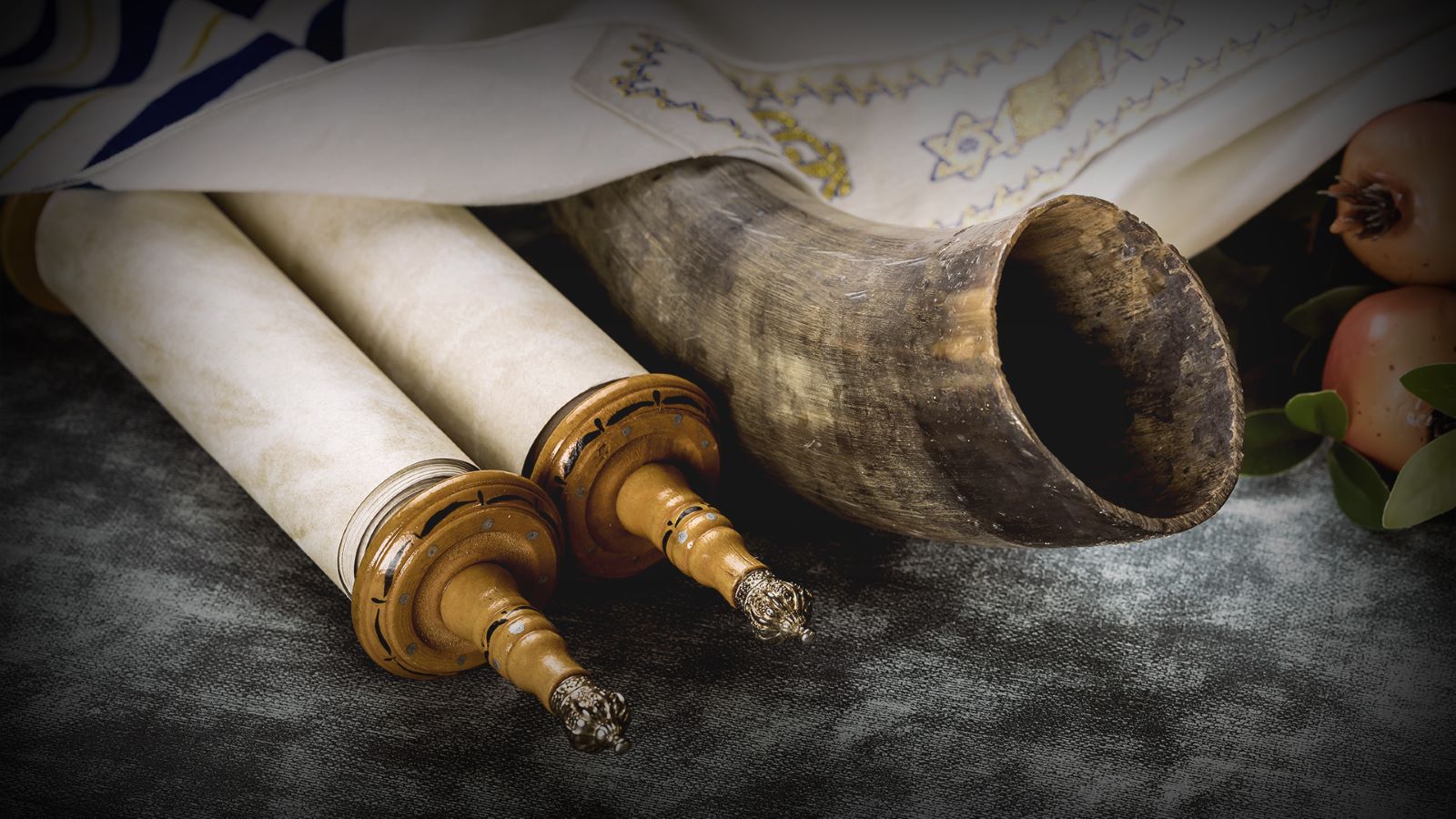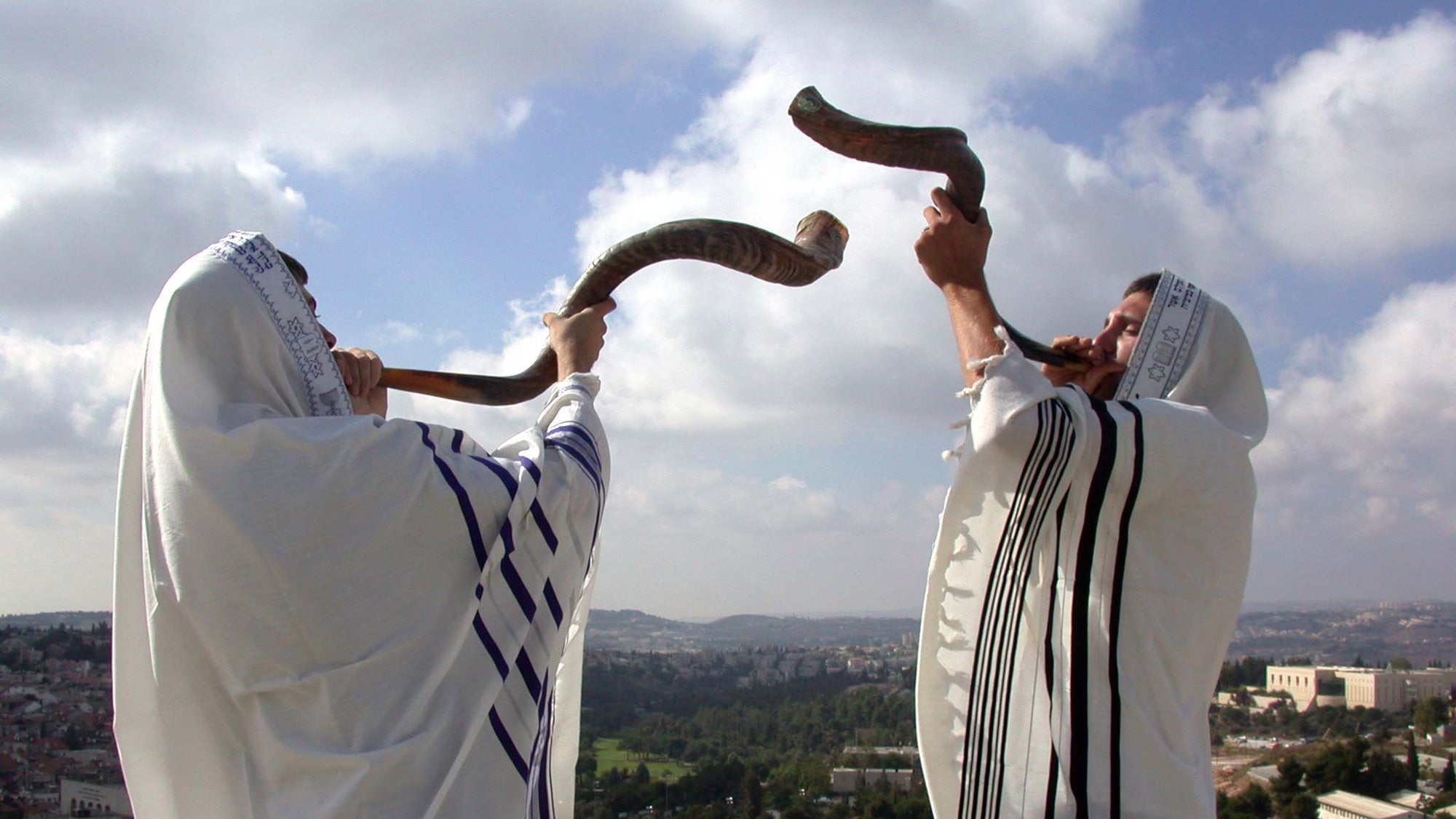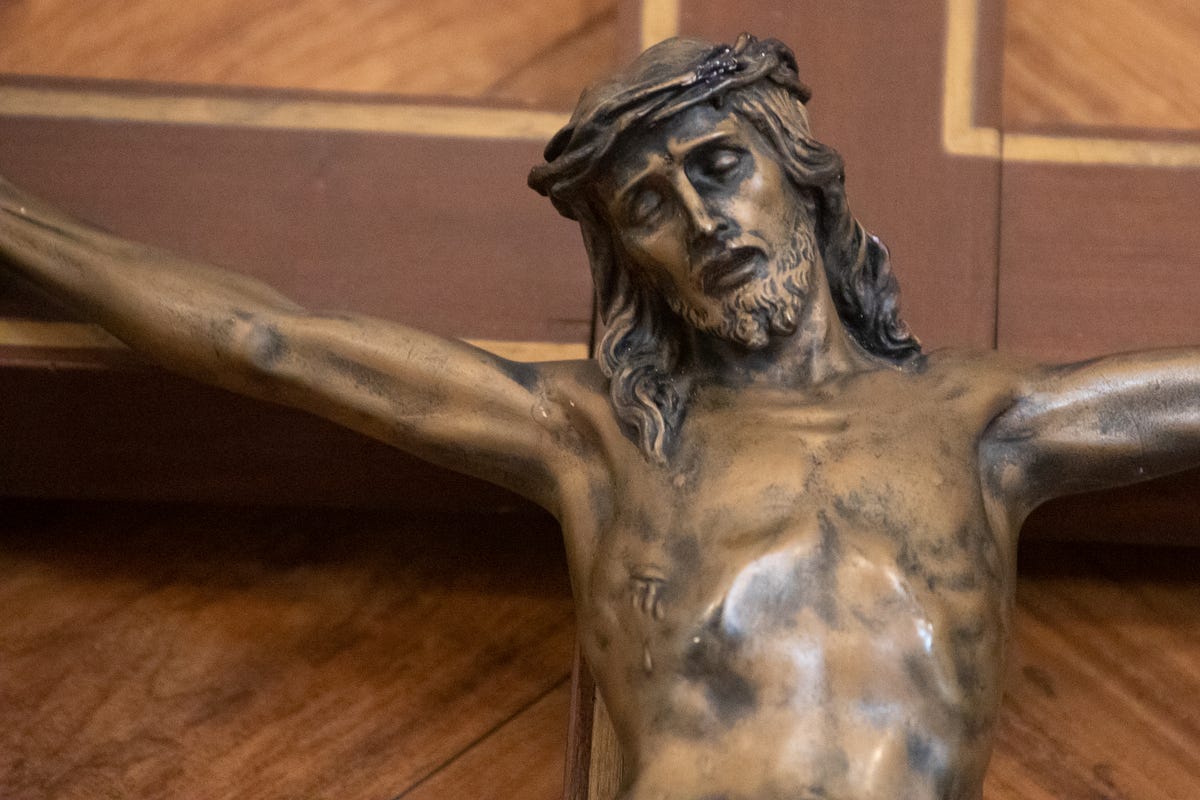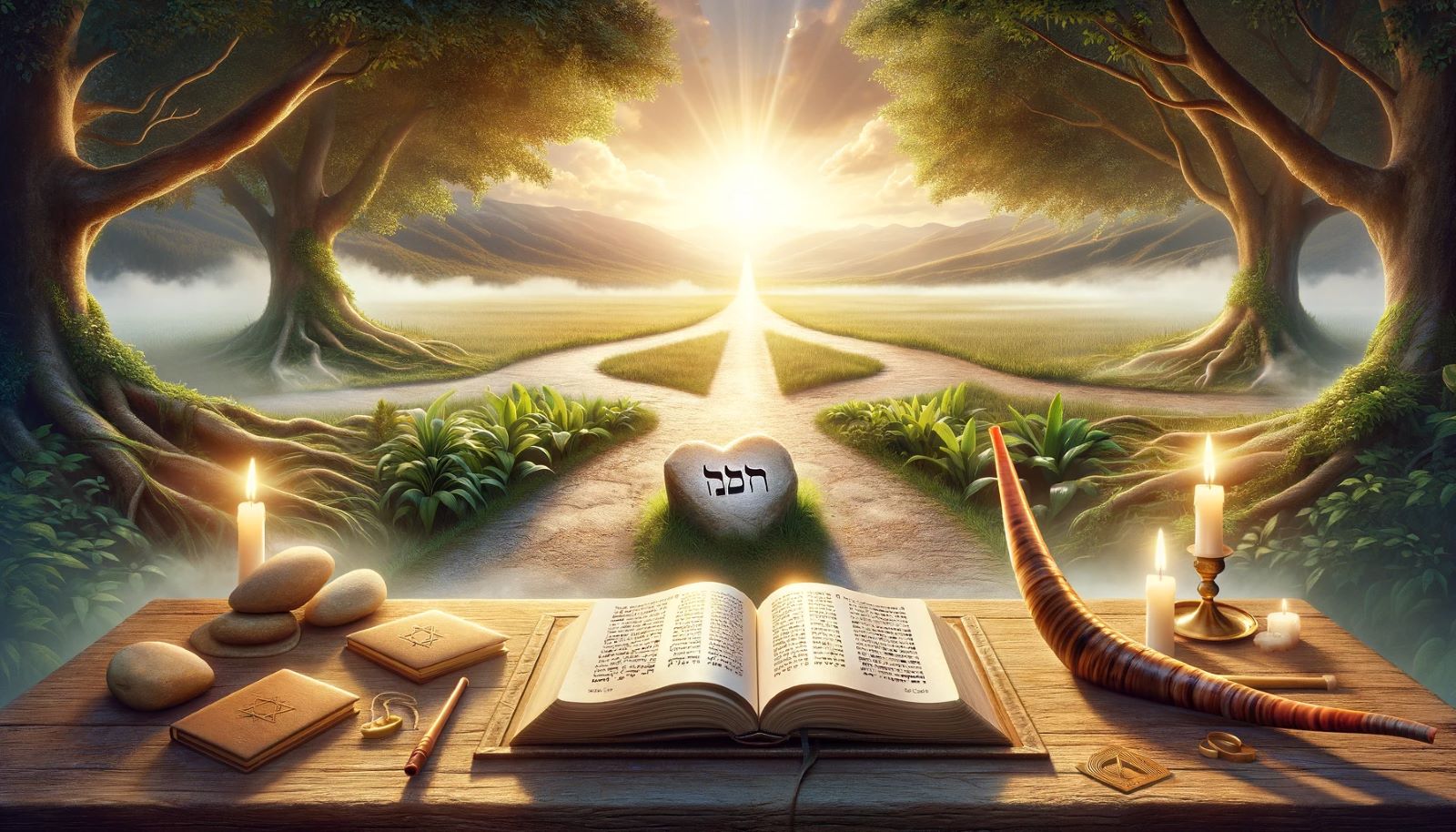Home>Theology and Spirituality>What Is The Purpose Of The Day Of Atonement


Theology and Spirituality
What Is The Purpose Of The Day Of Atonement
Published: February 9, 2024
Jason DeRose, Managing Editor at Christian.net, uses his expertise in religion and journalism to deepen understanding of faith's societal impacts. His editorial leadership, coupled with a strong academic background, enriches the platform’s diverse content, earning him recognition in both journalism and religious circles.
Discover the significance and rituals of the Day of Atonement in theology and spirituality. Learn about its purpose and importance in religious traditions.
(Many of the links in this article redirect to a specific reviewed product. Your purchase of these products through affiliate links helps to generate commission for Christian.net, at no extra cost. Learn more)
Table of Contents
Introduction
The Day of Atonement, also known as Yom Kippur in the Jewish tradition, holds profound significance in the realm of spirituality and religious observance. This sacred day is marked by introspection, repentance, and seeking reconciliation with the divine. It stands as a testament to the human yearning for spiritual renewal and the pursuit of atonement for past transgressions.
Yom Kippur is a day of solemn reflection and deep spiritual introspection. It serves as a time for individuals to engage in self-examination, seeking forgiveness for any wrongdoings committed against others and the divine. The essence of this day lies in the profound belief that genuine repentance and seeking forgiveness can lead to spiritual cleansing and renewal.
The observance of the Day of Atonement is rooted in ancient traditions and carries a timeless message of seeking reconciliation and spiritual purity. It serves as a reminder of the human capacity for growth and transformation, emphasizing the importance of acknowledging one's shortcomings and striving for personal and spiritual improvement.
As we delve into the historical, religious, and personal dimensions of the Day of Atonement, we will uncover the rich tapestry of rituals, practices, and profound spiritual significance that define this sacred day. It is a journey that transcends time and tradition, inviting individuals to embark on a path of self-discovery, repentance, and spiritual awakening.
The Day of Atonement beckons us to explore the depths of our souls, confront our imperfections, and aspire towards spiritual wholeness. It is a day of profound significance, offering a transformative experience for those who seek to engage with its spiritual and personal dimensions. Through this exploration, we will unravel the intricate layers of meaning woven into the fabric of this sacred day, illuminating its relevance and timeless significance in the lives of those who observe it.
Read more: What Is A Day Of Atonement
Historical Background of the Day of Atonement
The historical roots of the Day of Atonement can be traced back to ancient times, deeply embedded in the religious and cultural tapestry of the Jewish tradition. Its origins are intertwined with the narrative of the Israelites as they journeyed through the wilderness following their exodus from Egypt. The Day of Atonement, or Yom Kippur, is delineated in the Hebrew Bible, specifically in the book of Leviticus, where its observance is outlined in intricate detail.
The biblical account portrays the Day of Atonement as a pivotal moment in the spiritual life of the Israelites, marked by solemn rituals and profound significance. It was a day set aside for atonement and purification, a time when the high priest would enter the innermost sanctum of the Tabernacle or Temple to seek forgiveness for the sins of the entire community.
The historical significance of Yom Kippur is deeply intertwined with the concept of atonement, repentance, and reconciliation. It symbolizes the collective responsibility of the community to seek forgiveness and spiritual renewal. The rituals and practices associated with this sacred day were meticulously prescribed, emphasizing the gravity of the occasion and the profound need for spiritual cleansing.
Throughout history, the observance of Yom Kippur has evolved, adapting to changing circumstances and contexts while retaining its core significance. It has endured as a testament to the enduring spiritual values of introspection, repentance, and seeking reconciliation with the divine.
The historical background of the Day of Atonement serves as a testament to the enduring legacy of this sacred day. Its origins are steeped in the rich tapestry of ancient traditions, carrying forward a timeless message of spiritual renewal and the pursuit of atonement. As we delve into the religious significance and contemporary observance of Yom Kippur, we will gain a deeper understanding of its profound impact on the spiritual lives of those who observe it.
Religious Significance of the Day of Atonement
The Day of Atonement, known as Yom Kippur in the Jewish tradition, holds immense religious significance, serving as a cornerstone of spiritual observance and reflection. At its core, Yom Kippur embodies the profound belief in the human capacity for repentance, forgiveness, and spiritual transformation. It stands as a testament to the enduring values of humility, introspection, and the pursuit of reconciliation with the divine.
Central to the religious significance of Yom Kippur is the concept of atonement, or "at-one-ment," signifying the restoration of harmony and unity between individuals and the divine. It is a day dedicated to seeking forgiveness for transgressions committed against both God and fellow human beings. The act of atonement is rooted in the belief that genuine repentance and seeking forgiveness can lead to spiritual cleansing and renewal, fostering a deeper connection with the divine and with one another.
Yom Kippur also underscores the profound theme of accountability and personal responsibility. It calls upon individuals to confront their imperfections, acknowledge their shortcomings, and take ownership of their actions. Through introspection and sincere repentance, individuals strive to rectify their misdeeds and seek reconciliation, paving the way for spiritual growth and renewal.
The rituals and practices associated with Yom Kippur further underscore its religious significance. Fasting, prayer, and abstention from worldly activities symbolize a collective turning inward, a deliberate shift from the material to the spiritual. The act of fasting serves as a physical manifestation of the spiritual journey undertaken on this sacred day, emphasizing the commitment to self-discipline and spiritual devotion.
Moreover, the communal aspect of Yom Kippur reinforces its religious significance. It is a day when the entire community comes together in collective introspection and seeking of forgiveness. The shared experience of repentance and renewal fosters a sense of unity and common purpose, reinforcing the interconnectedness of individuals within the community and their shared commitment to spiritual growth.
In essence, the religious significance of the Day of Atonement is deeply rooted in the timeless values of repentance, forgiveness, and spiritual renewal. It serves as a poignant reminder of the human capacity for transformation and the enduring pursuit of atonement. As we delve into the rituals and practices of Yom Kippur, we will gain a deeper appreciation for its profound religious significance and the enduring impact it holds for those who observe it.
Rituals and Practices of the Day of Atonement
The observance of the Day of Atonement, or Yom Kippur, is characterized by a series of solemn rituals and practices that hold profound spiritual significance within the Jewish tradition. These rituals are meticulously designed to facilitate introspection, repentance, and seeking reconciliation with the divine, guiding individuals on a transformative journey of spiritual renewal.
Central to the observance of Yom Kippur is the practice of fasting, which spans a period of approximately 25 hours, beginning at sundown and concluding after nightfall the following day. The act of fasting serves as a powerful symbol of self-discipline and spiritual devotion, redirecting the focus from worldly pursuits to the inner realm of the soul. Through abstaining from food and drink, individuals embark on a collective journey of self-denial, emphasizing the spiritual significance of the day.
Prayer holds a central place in the rituals of Yom Kippur, with special liturgical services conducted throughout the day and evening. The prayers are characterized by solemnity and introspection, guiding individuals through a process of self-examination, repentance, and seeking forgiveness. The haunting melodies and poignant words of the prayers evoke a sense of reverence and spiritual awakening, fostering a deep connection with the divine and a profound yearning for atonement.
The sounding of the shofar, a traditional ram's horn, holds deep symbolic significance during the observance of Yom Kippur. The piercing sound of the shofar serves as a call to introspection and repentance, resonating with the collective desire for spiritual renewal and reconciliation. Its reverberations echo through the hearts and minds of those who observe, stirring a profound sense of urgency and solemnity.
Another integral practice during Yom Kippur is the concept of confession, or vidui, wherein individuals articulate a litany of sins and transgressions, both individually and collectively. This act of confession serves as a powerful catalyst for introspection and repentance, fostering a sense of accountability and personal responsibility. Through the act of confession, individuals confront their imperfections and seek forgiveness, paving the way for spiritual cleansing and renewal.
The rituals and practices of Yom Kippur culminate in a collective affirmation of faith and commitment to spiritual growth. As the day draws to a close, a sense of profound introspection and spiritual transformation permeates the community, reinforcing the enduring significance of this sacred day.
In essence, the rituals and practices of the Day of Atonement are imbued with profound spiritual symbolism, guiding individuals on a transformative journey of introspection, repentance, and seeking reconciliation with the divine. These rituals serve as a testament to the enduring values of spiritual renewal and the pursuit of atonement, fostering a deep sense of spiritual awakening and personal transformation for those who observe them.
Modern Observance of the Day of Atonement
In contemporary times, the observance of the Day of Atonement, or Yom Kippur, continues to hold profound significance within the Jewish community and beyond. While rooted in ancient traditions, the modern observance of Yom Kippur has evolved to resonate with the complexities of the present day, offering a timeless message of introspection, repentance, and spiritual renewal.
The modern observance of Yom Kippur encompasses a diverse array of practices and customs that reflect the enduring relevance of this sacred day. Communities around the world come together to observe Yom Kippur, engaging in a collective journey of introspection and seeking reconciliation with the divine. The observance begins with the Kol Nidre service, an evocative liturgical recitation that sets the tone for the solemnity and introspection that define Yom Kippur.
Fasting remains a central tenet of modern Yom Kippur observance, symbolizing a collective commitment to self-discipline and spiritual devotion. The act of refraining from food and drink for a period of approximately 25 hours serves as a powerful reminder of the spiritual significance of the day, redirecting the focus from material pursuits to the inner realm of the soul.
Prayer services conducted throughout Yom Kippur are characterized by a sense of reverence and introspection, guiding individuals through a process of self-examination and seeking forgiveness. The haunting melodies and poignant words of the prayers evoke a profound yearning for spiritual renewal, fostering a deep connection with the divine and a collective pursuit of atonement.
In addition to traditional rituals, modern observance of Yom Kippur often incorporates contemporary elements that resonate with the complexities of the present day. From engaging in acts of charity and kindness to fostering a spirit of reconciliation and forgiveness, individuals seek to imbue the observance of Yom Kippur with personal meaning and relevance, aligning its timeless message with the challenges and aspirations of the modern world.
The modern observance of Yom Kippur serves as a poignant reminder of the enduring values of introspection, repentance, and seeking reconciliation with the divine. It stands as a testament to the timeless relevance of this sacred day, offering a transformative experience for individuals and communities as they engage with its profound spiritual and personal dimensions.
Read more: When Is The Day Of Atonement For 2024
The Spiritual and Personal Importance of the Day of Atonement
The Day of Atonement, known as Yom Kippur in the Jewish tradition, holds profound spiritual and personal importance, transcending its historical and religious dimensions to resonate deeply within the hearts and minds of those who observe it. At its core, Yom Kippur embodies the timeless values of introspection, repentance, and seeking reconciliation with the divine, offering individuals a transformative journey of spiritual renewal and personal growth.
On a spiritual level, Yom Kippur serves as a sacred opportunity for individuals to engage in profound introspection, delving into the depths of their souls to confront their imperfections and seek spiritual purification. It is a day marked by solemnity and reverence, guiding individuals on a journey of self-examination and repentance. The act of seeking forgiveness, both from the divine and from fellow human beings, holds immense spiritual significance, fostering a deep sense of accountability and personal responsibility.
The spiritual importance of Yom Kippur is further underscored by the collective pursuit of atonement within the community. As individuals come together in prayer, fasting, and introspection, a sense of unity and shared purpose permeates the communal fabric, reinforcing the interconnectedness of souls in their quest for spiritual renewal. The rituals and practices of Yom Kippur serve as a conduit for individuals to transcend the mundane and connect with the divine on a deeply personal and spiritual level.
On a personal level, the significance of Yom Kippur is deeply profound, offering individuals a moment of reckoning and renewal. It is a day when the human spirit yearns for reconciliation, seeking to mend the fabric of relationships and restore inner harmony. The act of confession, or vidui, allows individuals to articulate their shortcomings and seek forgiveness, paving the way for personal transformation and spiritual growth.
Moreover, Yom Kippur provides a sacred space for individuals to release the burdens of the past, embracing the promise of a new beginning. It is a time for introspective contemplation, a moment to realign one's priorities and aspirations, and to embark on a journey of self-improvement and spiritual elevation. The personal significance of Yom Kippur lies in its capacity to inspire individuals to strive for moral and ethical refinement, fostering a deep sense of inner peace and spiritual wholeness.
In essence, the spiritual and personal importance of the Day of Atonement transcends its religious and historical dimensions, offering individuals a profound opportunity for spiritual renewal, personal growth, and the pursuit of atonement. It stands as a timeless testament to the enduring human yearning for spiritual purification and the pursuit of reconciliation, inviting individuals to embark on a transformative journey of self-discovery and spiritual awakening.
Conclusion
The Day of Atonement, or Yom Kippur, stands as a timeless testament to the enduring human yearning for spiritual purification, personal growth, and the pursuit of reconciliation. Its historical, religious, and personal dimensions intertwine to create a profound tapestry of introspection, repentance, and seeking renewal. As the sacred day draws to a close, its enduring significance resonates deeply within the hearts and minds of those who have engaged with its rituals and practices.
Yom Kippur's historical background, rooted in ancient traditions and meticulously delineated in the Hebrew Bible, serves as a testament to the enduring legacy of this sacred day. Its rituals and practices, from fasting to prayer and the sounding of the shofar, embody the timeless values of spiritual renewal and the pursuit of atonement. The religious significance of Yom Kippur underscores the profound themes of repentance, forgiveness, and personal responsibility, offering individuals a sacred space for seeking reconciliation with the divine and with one another.
In modern times, the observance of Yom Kippur continues to resonate with the complexities of the present day, offering a timeless message of introspection, repentance, and spiritual renewal. Communities around the world come together to engage in a collective journey of seeking reconciliation and personal transformation, infusing the observance with contemporary elements that align its timeless message with the challenges and aspirations of the modern world.
The spiritual and personal importance of Yom Kippur transcends its religious and historical dimensions, offering individuals a profound opportunity for spiritual renewal, personal growth, and the pursuit of atonement. It serves as a sacred space for individuals to confront their imperfections, seek forgiveness, and embark on a journey of self-improvement and spiritual elevation. Yom Kippur stands as a timeless testament to the enduring human yearning for spiritual purification and the pursuit of reconciliation, inviting individuals to embark on a transformative journey of self-discovery and spiritual awakening.
In conclusion, the Day of Atonement, or Yom Kippur, embodies the timeless values of introspection, repentance, and seeking reconciliation with the divine. Its enduring significance resonates deeply within the hearts and minds of those who engage with its rituals and practices, offering a transformative experience that transcends time and tradition.














